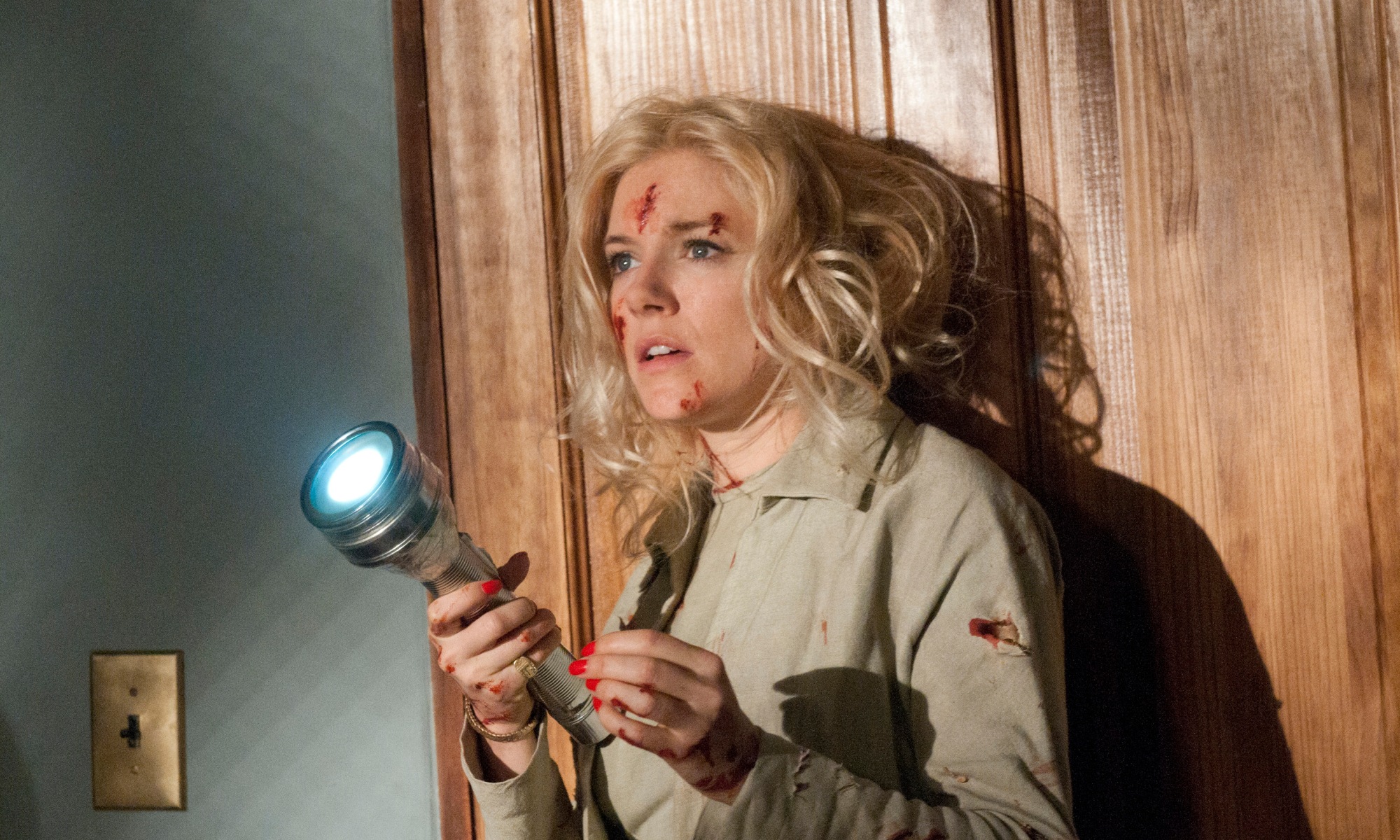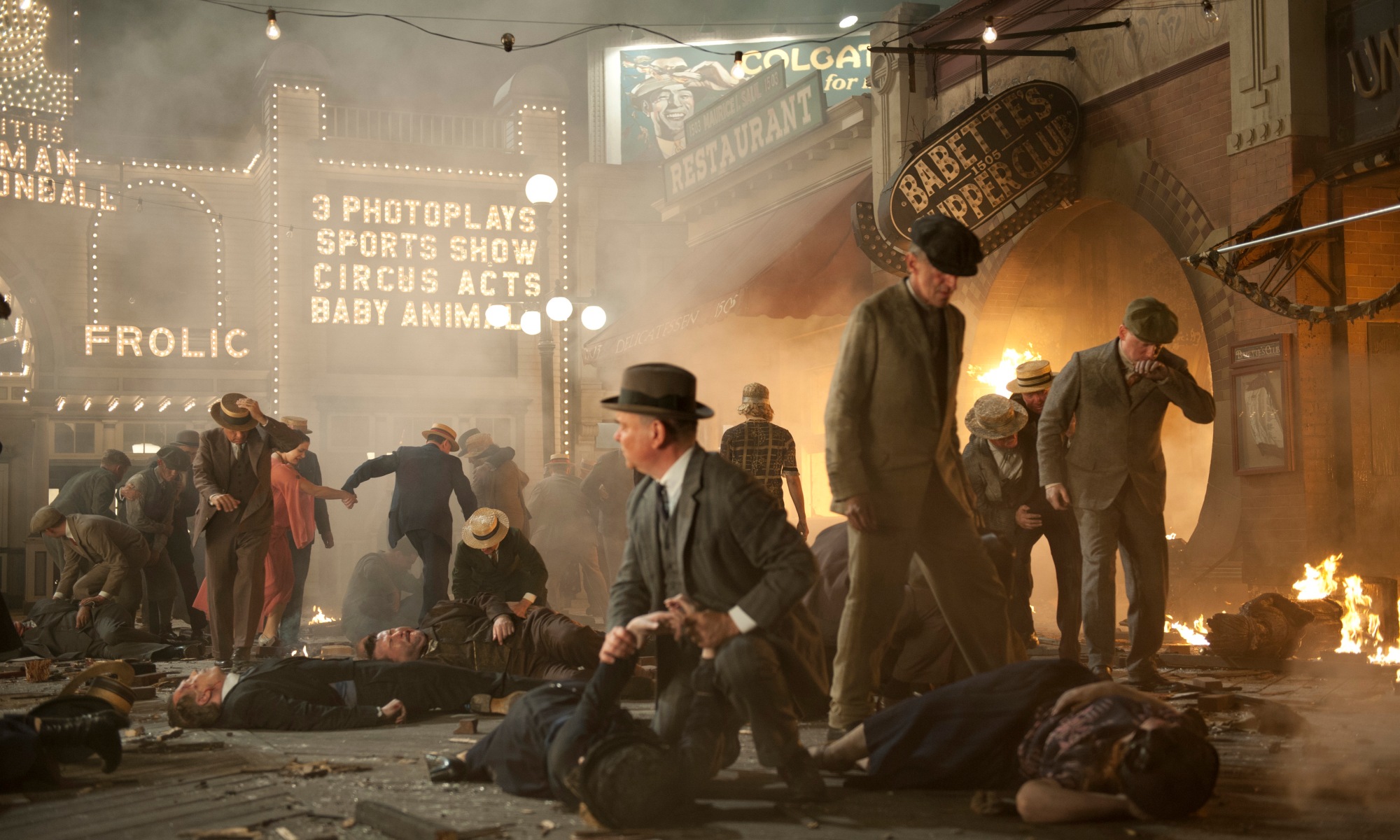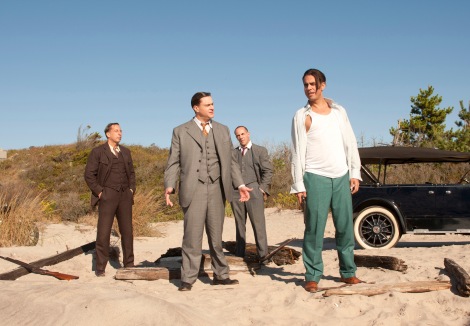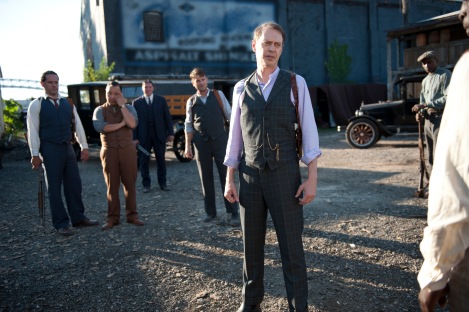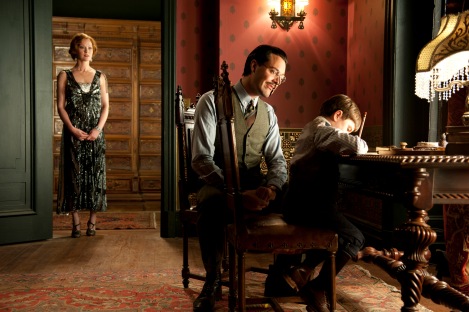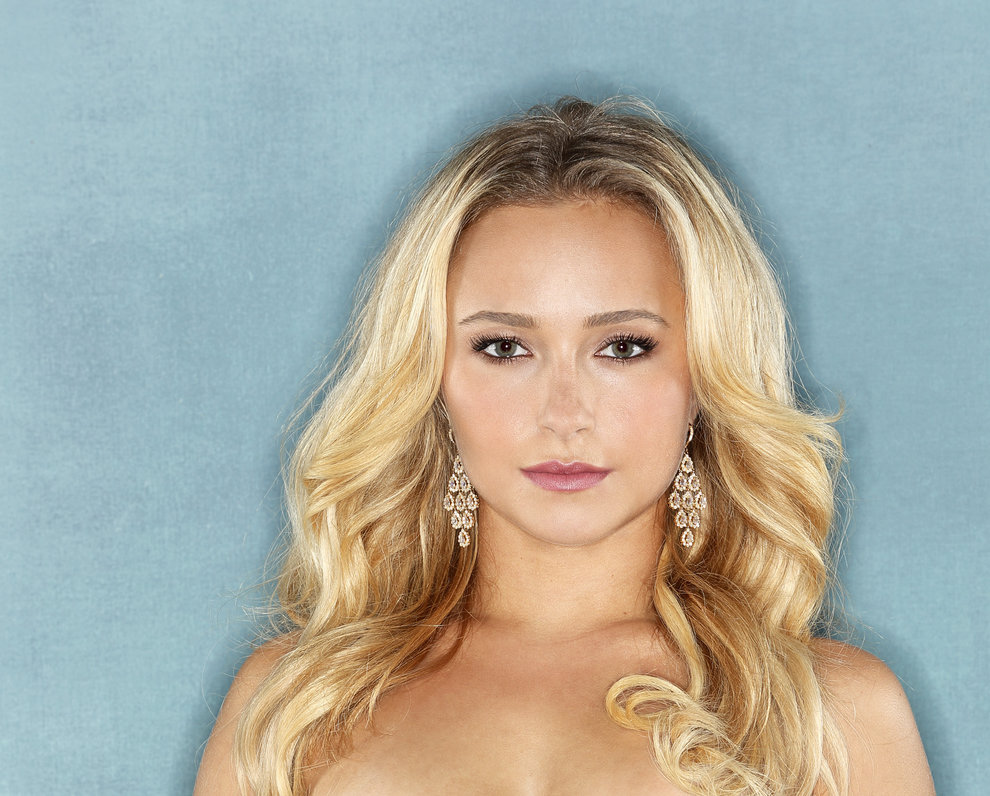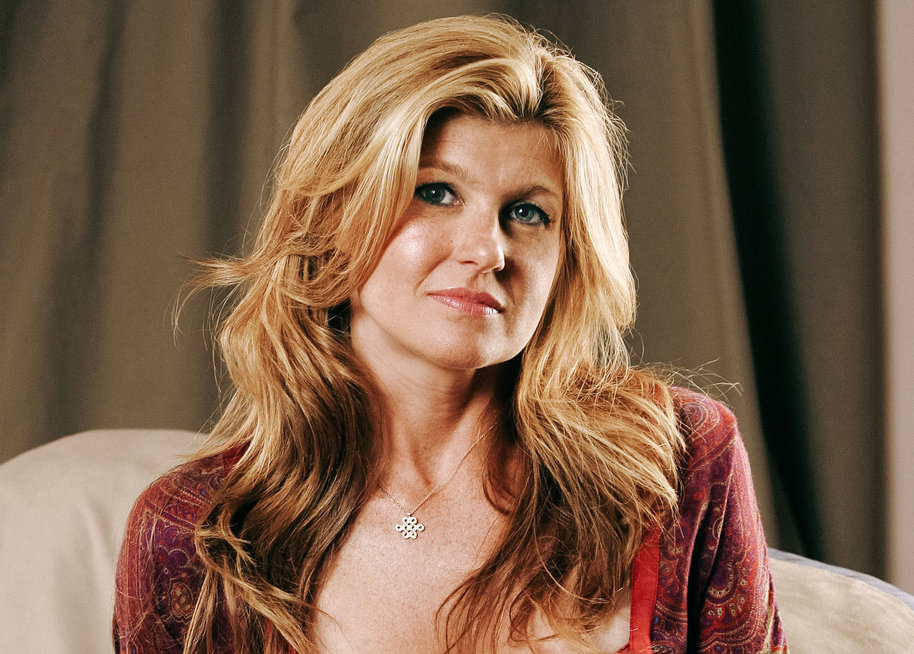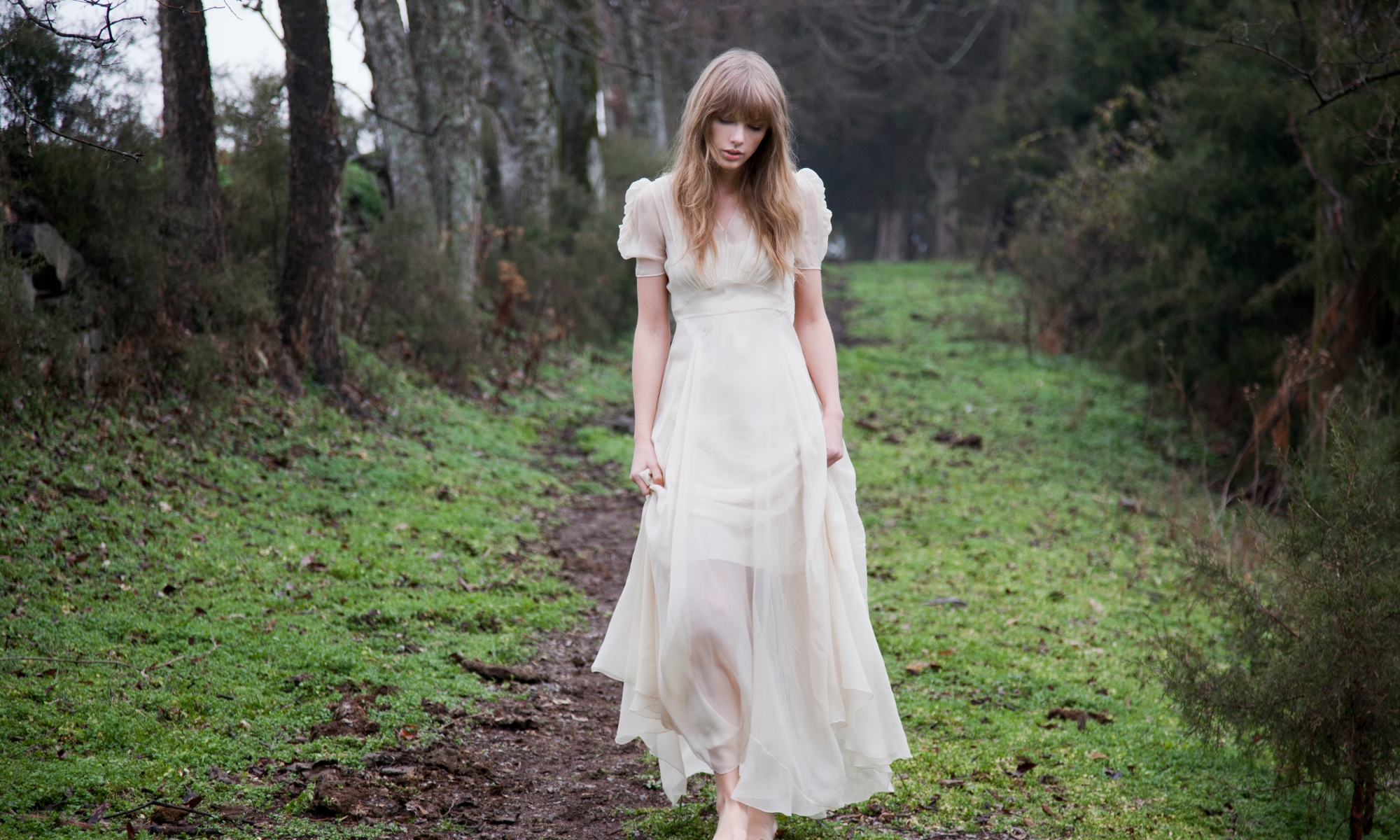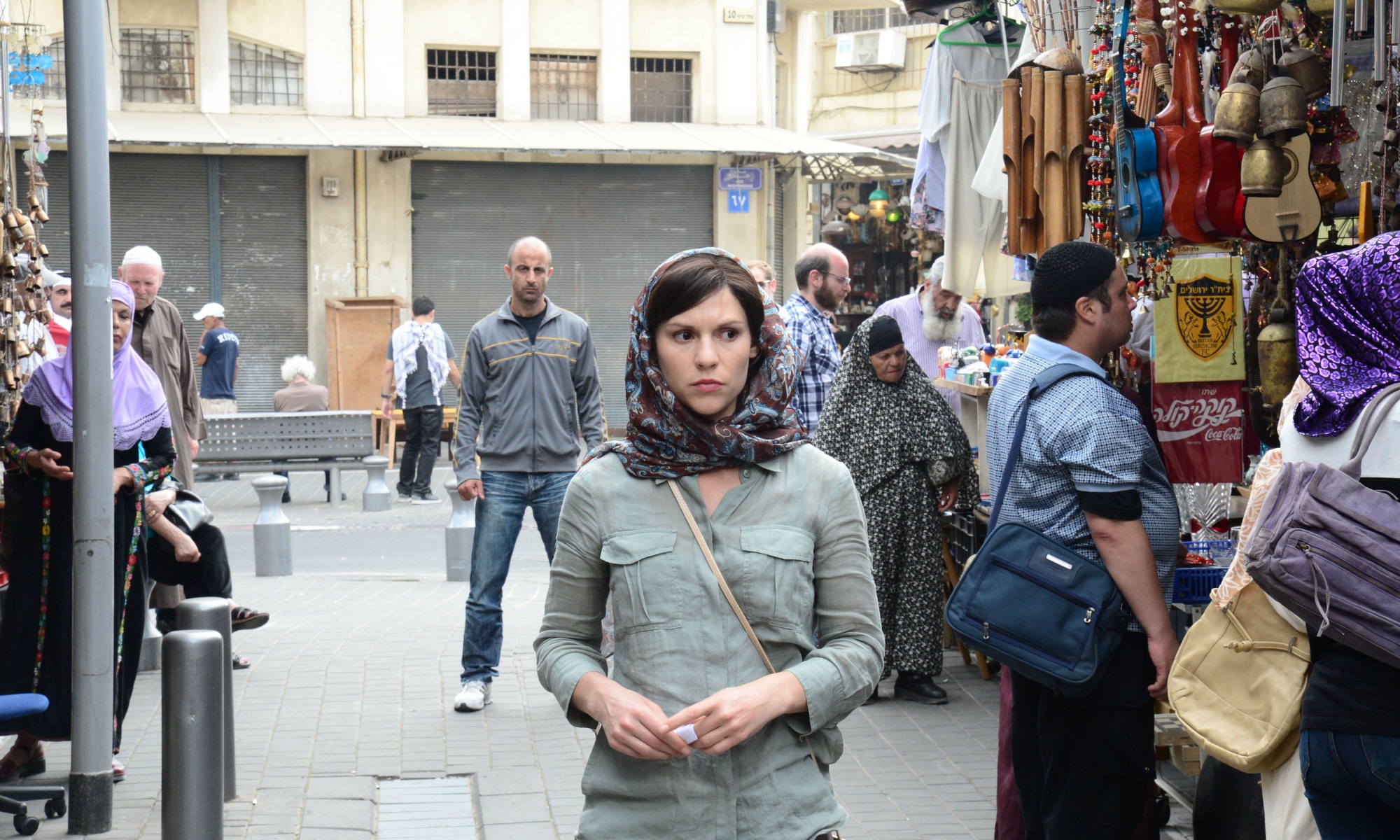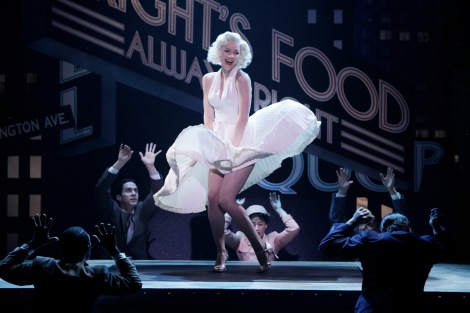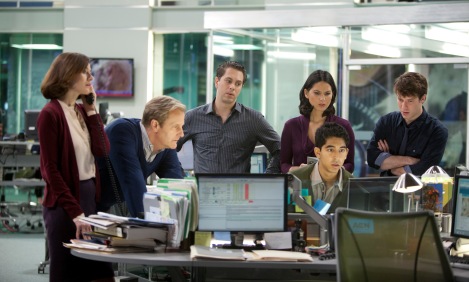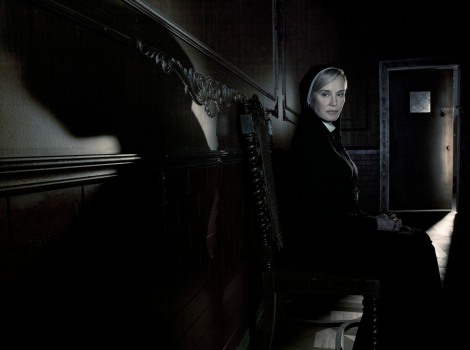Thomas J. McLean is an AwardsLine contributor. This article appeared in the Jan. 2 issue of AwardsLine.
Alfred Hitchcock built his reputation as cinema’s undisputed master of suspense by using every tool and trick at his disposal to tell tales of powerless peril, circumstance, and betrayal—usually with a lovely blonde starlet front and center.
But the story behind the story has been revealed as appropriately Hitchcockian in its own way, as proven by The Girl, nominated for three Golden Globes for best TV movie or miniseries, best actor in a TV movie for Toby Jones’ portrayal of Hitchcock, and best actress in a TV movie for Sienna Miller’s take on actress Tippi Hedren.
The HBO Films and BBC presentation delves into the rocky relationship the director had at the height of his career with model-turned-actress Hedren during the making of The Birds and Marnie. Hedren’s relationship with Hitchcock, who had long developed a fascination bordering on obsession with his leading ladies, veered from charming and erudite into much darker territory that tested her limits.
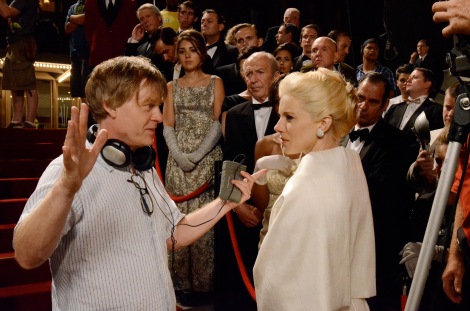
The story, which Gwyneth Hughes scripted based on Donald Spoto’s book Spellbound by Beauty: Alfred Hitchcock and His Leading Ladies, offered a way to explore both Hitchcock’s dark side and his creative impulses, says director Julian Jarrold.
“Hitchcock is such an extraordinary person to investigate based on his personality and his psychology,” says Jarrold, a veteran of British cinema and TV. “The kernel of the story seemed to be about his demons and obsessions, which also seemed to be reflected in his movies.”
To avoid playing just to the caricature of Hitchcock, the filmmakers turned to the chameleon-like qualities of Jones, who previously has played such diverse real-life roles as Truman Capote and Karl Rove. “He’s not ever going to do a straight impersonation,” says Jarrold.
A huge admirer of Hitchcock’s work, Jones says the role was impossible to turn down. “My concern was it would be a hatchet job on Hitchcock,” he says. “But I felt that what Gwyneth had presented in the script was this element of tragedy.”
In Miller, the filmmakers saw many of the same qualities of Hedren, who was a well-established model and independent single mother at the time Hitchcock cast her in The Birds. “There was something intriguing about her, with the kind of life history that she’s had, really, of being able to use that and be able to play against that,” Jarrold says. “She understood this character.”
Miller was drawn to Hedren’s reserved and almost icy, European quality. “I liked playing someone a little more contained than I had (played) in the past,” she says.
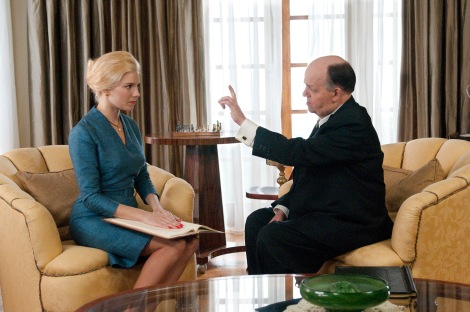
The chance to meet and talk with the real Hedren, who had assisted Hughes in researching the script, was also exciting for the actress. “I’ve played real people before, but never anyone who could critique the performance at the end of it,” says Miller.
The 28-day shoot was set in Cape Town, South Africa, chosen for its resemblance to The Birds’ original shooting location of Bodega Bay, CA, in the mid-1960s. Jarrold says efficiency was the watchword on set, especially with Jones needing to undergo four hours each day of makeup, which included facial prosthetics, a fat suit, and wigs.
Jones studied recordings and footage of the director to get not just the way he moved but his iconic voice, which has elements of everything from cockney to California in it, the actor says. Once he had donned Hitchcock’s iconic suits and begun to speak like him, it was easier to stay in the role as much as possible on set.
“Toby would transform himself into Hitch, and we spent the day as those people,” says Miller. “He’s phenomenal, as everyone knows, as an actor, and imposing as Hitchcock. He was staying in character, but not in a way that was indulgent and creepy.”
The work on set was confusing in a fun way, Miller says, with the set itself being a set and having Jones play a director being directed by the real director. There also were moments where the pace of production and the darkening arc of the script made for some tension. “There were definitely moments where it was exhausting and nasty,” says Miller. “I think that isolation that she felt is really unpleasant, but at the same time, I had a real director who was really warm.”
Jones says the South Africa location brought the right amount of intensity to the tale. “To a visitor, there’s a certain uneasiness. You’re trying to work out the politics, and that feeds usefully into the work itself,” he says. “This is an uncomfortable story.”
Hitchcock’s famous directing style had some influence on Jarrold’s approach, but the director says he resisted the temptation to fill the movie with homages. “I wanted to give the atmosphere and feel of his style, the American style if you like,” he says.
He also moved more quickly, filming the famous attic scene from The Birds in a little more than three hours—a scene that took Hitchcock five days. “We just had it running in long shots,” Jarrold says. “It was almost like a live event.”
For Miller, the final nervous hurdle to overcome was when Hedren saw The Girl. “She was very complimentary and very supportive and very relieved,” says Miller. “She sent me this smashing email I will treasure forever.”

